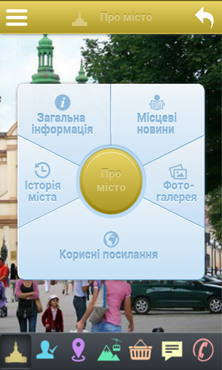In Nepal, it is estimated that corruption accounts for losses up to USD 3.3 billion. This has resulted in many development resources being diverted away from their intended beneficiaries, thereby elevating the cost of living. According to Transparency International, the cost of water in Nepal is 30 percent higher due to corruption, while general products cost on average 20 percent more than they should.
In light of the growing concern from both the Government of Nepal and civil society, the United Nations Development Programme (UNDP) and the United Nations Office for Drugs and Crime (UNODC) jointly organised a ‘Partnering in Anti-Corruption Knowledge (PACK)’ training with the aim to improve the knowledge and understanding of the UN Convention against Corruption (UNCAC) amongst Government officials and the donor community.
The UNCAC is a global legally binding international instrument against corruption. It was formally adopted in 2003, and currently 171 parties are signatories to the convention. The UNCAC sets out to prevent and combat corruption and offers technical assistance in international cooperation and asset recovery. The Convention also outlines the role of civil society in countering corruption.
Nepal ratified the convention in 2011 and has since been proactively involved in strengthening national legislation in accordance with the UNCAC. Currently, the National Strategy and Plan of Actions on anti-corruption includes 13 sub-strategies and upwards of 173 activities in the area of anti-corruption. Around 23 laws are also being considered for amendment, while eight laws are awaiting enactment. In an effort to further the national momentum on anti-corruption, the PACK training delivered by UNODC and UNDP brought together Representatives from the Government of Nepal and from the donor community, including Representatives from the World Bank, Norwegian Embassy, Department for International Development (DFID)- United Kingdom, Asian Development Bank (ADB) and other agencies.
During the interactive training, the two groups were led into discussions around how they would seek to improve the environment in which anti-corruption activities take place. This activity brought forward ideas and concepts that reflected both the wishes and priority concerns of the participants. Some of the suggestions brought forward were (i) a concerted effort needs to be made to consolidate the various anti-corruption agencies and government entities, with the Commission for the Investigation of Abuse of Authority (CIAA) as the lead agency to coordinate and consolidate anti-corruption efforts in the country, (ii) establish and strengthen regional judiciaries and courts to alleviate the stress on the central authority, (iii) maintain and improve the rule of law within the country, to provide for a stronger foundation for development activities and (iv) improve efforts to help the Government of Nepal in developing process and result oriented programming.
The donor community too put forward their perspective and concerns regarding anti-corruption activities in the county. They felt that criminalization of corruption in all sectors is important, as development efforts are not confined to public works and involve private sector actors as well. They also felt that in order to counter corruption it is crucial to have judicial independence, along with an active and free civil society.
The workshop concluded that a joint partnership on anti-corruption efforts should focus on (i) increasing the capacity of staff within anti-corruption organizations in order to focus on the core strategies of punitive and preventative functions, (ii) increasing interaction with the private sector, civil society and the media to sensitize them on anti-corruption issues, (iii) creation of a working group, in order to facilitate better coordination and interaction amongst stakeholders, (iv) developing a coordination mechanism for government agencies and (v) reviewing the national strategy and providing a consolidated singular action plan to replace the multitude of other independently developed strategies and action plans.
This was the first-ever country level training in Nepal for both government and donors on Partnering in Anti-Corruption Knowledge. The discussions encouraged dialogue and a sharing of ideas between two critical anti – corruption stakeholders in the country – the Government and the donor community – and paved the way towards developing concrete proposals in the spirit of partnership.
The training was conducted under the UNODC led project titled, ‘Joint Action towards a Global Regime against Corruption’ with financial support from the Government of Australia.
Click here to read the UN Convention against Corruption (UNCAC)


